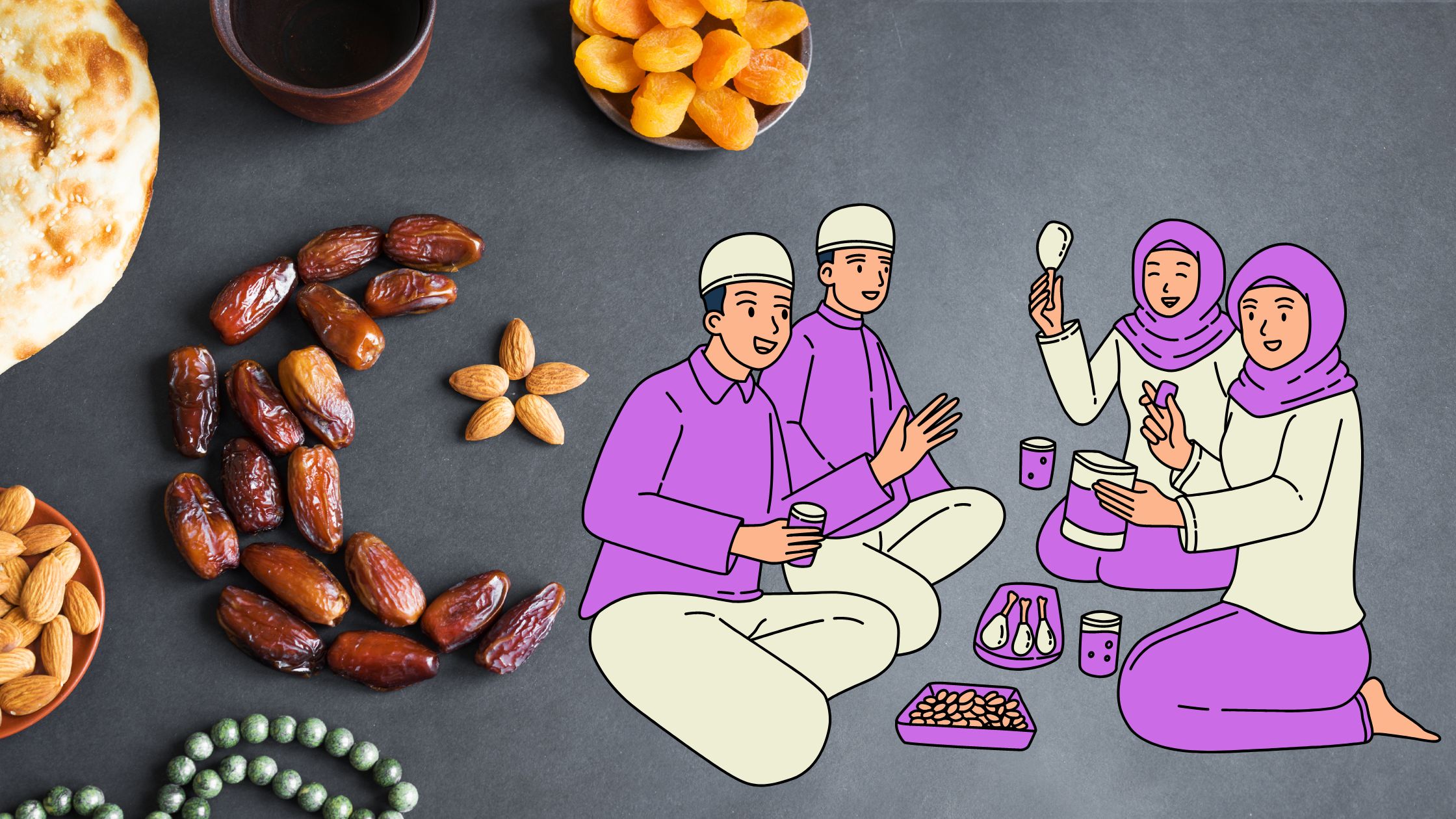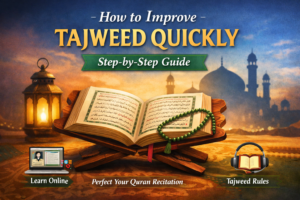In summary, during Ramadan, Muslims have specific guidelines regarding what breaks a fast, including foods, drinks, and other factors. The pre-fasting meal (Suhoor) often begins with dates, as recommended by the Prophet Muhammad, followed by a fast until sunset (Maghreb) when Iftar, or the breaking of the fast, occurs.
Muslims abstain from eating, drinking, and other activities such as sexual intercourse and intentional vomiting during daylight hours. Unintentional actions, forgetfulness, or being forced into them do not invalidate the fast. However, intentional actions such as consuming food or drink, sexual intercourse, and vomiting on purpose do break the fast.
Additionally, menstrual bleeding prohibits fasting, but menstruating women can eat in private during Ramadan to maintain the sanctity of the fasting period. These guidelines serve to uphold the spiritual significance and discipline of fasting during Ramadan while also accommodating individual circumstances and needs.
Everything you need to know about eating during Ramadan and what breaks fasting during Ramadan in Islam. All about the invalidation Of Fasting, Prohibitions, And Banned Acts During Fasting
Table of Contents
What do Muslims Eat During Ramadan?
Many Muslims want to know the best foods and drinks that the Prophet and his companions used to have during Ramadan
1. The Best Food For Iftar
The best food for your Iftar is the dates. It is preferable to start with.
Anas ibn Malik reported: The Prophet, peace, and blessings are upon him, would break his fast before praying with fresh dates. If there were no fresh dates, then with dry dates. If there were no dry dates, then with some sips of water.
Source: Sunan al-Tirmidhī 696
Grade: Sahih (authentic)
2. The Best Food for the pre-Fasting Meal ( Suhoor)
Abu Huraira reported: The Prophet, peace, and blessings be upon him, said, “The most excellent pre-fasting meal of the believer is dated.” Source: Sunan Abī Dāwūd.
It is worth mentioning that The kinds of foods or drinks mentioned in the above Hadiths are not a must. They are just recommended by the prophet Muhammad (peace and blessings be upon him).
It is narrated that he ate other kinds of foods such as honey, bread, oil, and meat. The important matter is that, He ( peace and prayers are upon him) used to eat whatever he found in his house.
3. Don’t Miss Suhoor
The Prophet Muhammad peace and blessings are upon him said, “Eat Suhoor, for in suhoor there is blessing.” (Narrated by Bukhari and Muslim).
When Do Muslims Eat During Ramadan?
Muslims who are fasting during Ramadan must not eat or drink anything during the hours of daytime of Ramadan. They can have the pre-fasting meal (the Suhoor) before dawn. Then, they keep fasting until sunset (Maghreb). When they hear Azan, they can start Iftar.
“And eat and drink until the white streak of dawn can be distinguished from the black streak. Then complete the fast until nightfall.” Surah Al Baqarah, verse,187.
Can Muslims Drink Water During the Daylight Of Ramadan?
No, Muslims can’t drink water during the daylight Of Ramadan. If a fasting person drinks water or any other liquids during the fasting time, His fasting will be invalidated.
What Happens If You Accidentally Eat During Ramadan?
If the fasting person eats or drinks unintentionally, in case if they forget that they are fasting, then they should continue fasting. Nothing wrong with their fast. Forgetfulness doesn’t invalidate fasting.
Ibn Abbas reported: The Prophet, peace and blessings be upon him, said, “Verily, Allah has overlooked for my nation their honest mistakes, forgetfulness, and what are forced into doing.”
Source: Sunan Ibn Mājah 2045
On the other hand, if the If fasting person eats or drinks intentionally during the day of Ramadan, the fasting person will not lose his fast; Allah said, “And eat and drink until the white streak of dawn can be distinguished from the black streak. Then complete the fast until nightfall.” Surah Al- Baqarah, verse, 187
Do Gum, Nourishment Syringes, And Injections Invalidate Fasting?
Yes, Gum, Nourishment Syringes And Injection Invalidates Fasting they do. Anything is relevant to foods and drinks invalidates Fasting, such as gum, nutritive substances, injections with needles or vitamin pills.
Though they are not actually foods or drinks, They are considered the same as eating or drinking. Therefore, they are not different from eating and drinking because if they’re not kinds of foods and drinks, they still have the same ruling.
Does Ejaculating of Semen Break Fasting?
Yes. One of the fasting Invalidation is the intentional ejaculating of semen, whether by kissing, touching, or sexual foreplay.
If it happened unintentionally by night visions or daytime dreams, it doesn’t break the fasting.
Can Muslims Have Sexual Intercourse (Gema’a) During Ramadan Daytime?
It is forbidden for Muslims to have sexual intercourse duting daytime in Ramadan = from dawn (al-Fajr) until sunset (Maghreb). If it happens, it not only invalidates Fasting but also involves propitiation:
Both couples have to fast another day after Ramadan month, and the husband must fast for sixty days in addition to this day if he could not fast, he then has to feed sixty poor people). Sexual Intercourse is allowed after sunset (Iftar).
Does kissing, Hugging, or Touching Without a Sexual Desire Break Fasting?
No, it doesn’t invalidate fasting as long as there is no ejaculating of semen. For what is narrated of Aisha’s true words:
The Prophet (ﷺ) used to kiss and embrace (his wives) while he was fasting, and he had more power to control his desires than any of you. Said Jabir, “The person who gets discharged after casting a look (on his wife) should complete his fast.” Sahih al-Bukhari 1927.
Does Vomiting On Purpose Invalidate Fasting?
If someone needed to vomit because they are sick and vomiting will help them to get recovered, then it is allowed for them to do that, but they have to make up that day after Ramadan.
The person who vomits unintentionally and without meaning to do so, their fast is still valid. But the one who vomits intentionally his fast has been broken, because of the report narrated from Abu Hurayrah (may Allaah be pleased with him), that the Prophet (peace and blessings of Allaah be upon him) said: “The one who cannot help vomiting does not have to make up the fast, but the one who vomits deliberately has to make it up.” Al-Tirmidhi 720. Grade: Saheeh. ( Authentic)
Does The Menstrual Blood break the fast during Ramadan?
Yes, it does. That is due to the report of our prophet Muhammad (peace and blessings be upon him), he was talking to some women. He said,
“Isn’t it true that a woman can neither pray nor fast during her menses?” The women replied in the affirmative. He said, “This is the deficiency in her religion.”
Sahih al-Bukhari 304.
Can Women Eat During Ramadan on their Menstrual Period
Some scholars said that the sick, the traveler, and the woman who is in her menstruation period should not Fast, but at the same time, they should not show eating food during the daytime of Ramadan publically.
Instead, it should be in private. That is to respect the feelings of the fasting persons, on the other hand they do that in order not to be accused of negligence of their religion.
Learn the Quran Online With Bayan al-Quran Native Arab Tutors:
Embark on a transformative journey of Quranic learning with Bayan Al-Quran’s comprehensive online courses. Our platform offers an authentic and immersive experience tailored to learners worldwide. Whether you’re a beginner or seeking to enhance your skills, our Tajweed courses provide expert guidance and structured learning to master the art of Quranic recitation.
🎓 Expert Guidance:
Benefit from experienced instructors who specialize in Tajweed, breaking down complex rules into manageable segments for learners of all levels.
✨ Key Features:
- Structured, step-by-step learning approach.
- Access to high-quality instructional materials.
- Real-time feedback from qualified tutors to enhance your practice.
- Flexible learning schedules to accommodate your pace and convenience.
- Immerse yourself in the melodious tones of Quranic recitation, enriching your spiritual experience.
🌟 Why Choose Bayan Al-Quran?
Join our vibrant community dedicated to perfecting Quranic recitation. Build a profound connection with the divine words of the Quran and enrich your spiritual journey. Choose Bayan Al-Quran for a transformative learning experience and embark on a path to mastering Tajweed with confidence.
You can also attend online Quran and Arabic Classes with Bayan al-Quran with Native Arab tutors. There are also several courses that can help you in this regard:
- Learn Quran Online With Tajweed For Kids And Adults
- Learn Arabic Online Course
- Islamic Studies Online Course
- Noorani Qaida Online Course For Kids And Adults
Conclusion:
In conclusion, adhering to the guidelines for fasting during Ramadan is a fundamental aspect of the Islamic faith, symbolizing discipline, devotion, and spiritual purification. The rules surrounding what breaks a fast, including abstaining from food, drink, and certain activities during daylight hours, are essential for upholding the sanctity of the holy month.
While unintentional actions or forgetfulness do not invalidate the fast, intentional violations require repentance and, in some cases, making up for lost days. Ramadan serves as a time for Muslims to deepen their connection with Allah, practice self-control, and cultivate empathy for those less fortunate.
By observing these guidelines, Muslims uphold the spiritual significance of Ramadan and honor the traditions set forth by the Prophet Muhammad, peace be upon him.

















